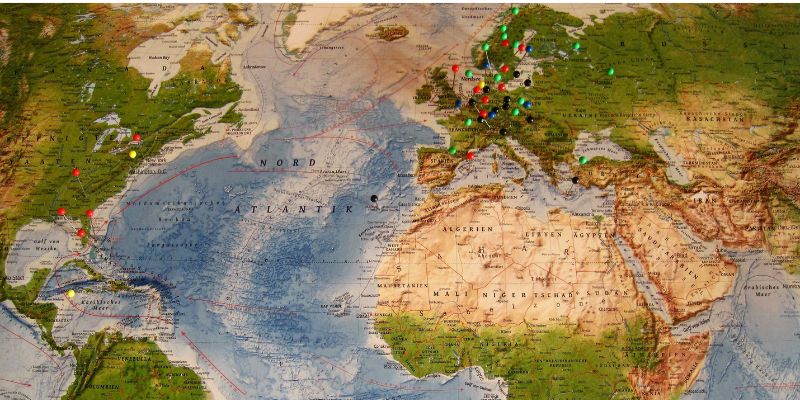Borders are a defining characteristic of the modern world, dividing countries, regions, and communities into separate and distinct entities. The existence of borders can have both positive and negative effects on the world and its people, depending on the context in which they are created and maintained.
On the one hand, borders can help to promote stability, security, and peace by clearly defining the limits of political, economic, and cultural influence between countries. This can lead to greater cooperation and understanding between neighboring countries, as well as to a more predictable and stable international system. Borders can also help to protect the rights of individual citizens and to ensure that they are able to participate fully in the political, economic, and cultural life of their countries.
However, borders can also have negative effects on the world and its people. They can create tensions and conflicts between neighboring countries and can act as barriers to trade, migration, and cultural exchange. Borders can also restrict the flow of people and ideas, which can limit the growth and progress of both individual countries and the world as a whole.
In addition, the existence of borders can also have a profound impact on the lives of individual people. For example, the creation of borders can lead to the displacement of entire communities and the separation of families, as well as to the restriction of freedom of movement and the denial of access to essential services and resources.
Despite these challenges, the existence of borders remains a fact of life in the world, and it is unlikely that they will disappear anytime soon. However, by working together and building bridges of understanding, cooperation, and friendship across borders, it is possible to mitigate the negative effects of borders and to create a more just and equitable world for all people.
- Restrictions on freedom of movement: Borders restrict the freedom of movement of people and goods, which can have a negative impact on trade, tourism, and migration. This can lead to economic, social, and cultural isolation, as well as to the restriction of access to essential services and resources.
- Tensions and conflicts: Borders can create tensions and conflicts between neighboring countries, as well as between communities within countries. This can lead to disputes over resources, territory, and political influence, as well as to the suppression of minority rights and freedoms.
- Economic costs: Borders can also have significant economic costs, as they can restrict the flow of trade and investment, increase the cost of transportation and communication, and lead to the duplication of infrastructure and services.
- Displacement and separation of communities: The creation of borders can lead to the displacement of entire communities and the separation of families, which can have a traumatic and long-lasting impact on the lives of those affected.
- Restriction of cultural exchange: Borders can restrict the exchange of cultural and intellectual ideas, which can limit the growth and progress of both individual countries and the world as a whole.
- Inequalities: Borders can also exacerbate existing inequalities and injustices, as they can restrict the movement of people and goods between regions, countries, and continents. This can lead to the concentration of wealth and power in certain regions and countries, and to the marginalization of others.
Borders have several disadvantages, including restrictions on freedom of movement, tensions and conflicts, economic costs, displacement and separation of communities, restriction of cultural exchange, and inequalities. It is important to recognize and address these challenges, in order to create a more peaceful, stable, and just world for all people. In conclusion, the existence of borders in the world is a complex and multifaceted issue, with both positive and negative effects on the world and its people. While it is important to recognize the challenges that borders can create, it is also important to work together to overcome these challenges and create a more peaceful and stable world for future generations.




